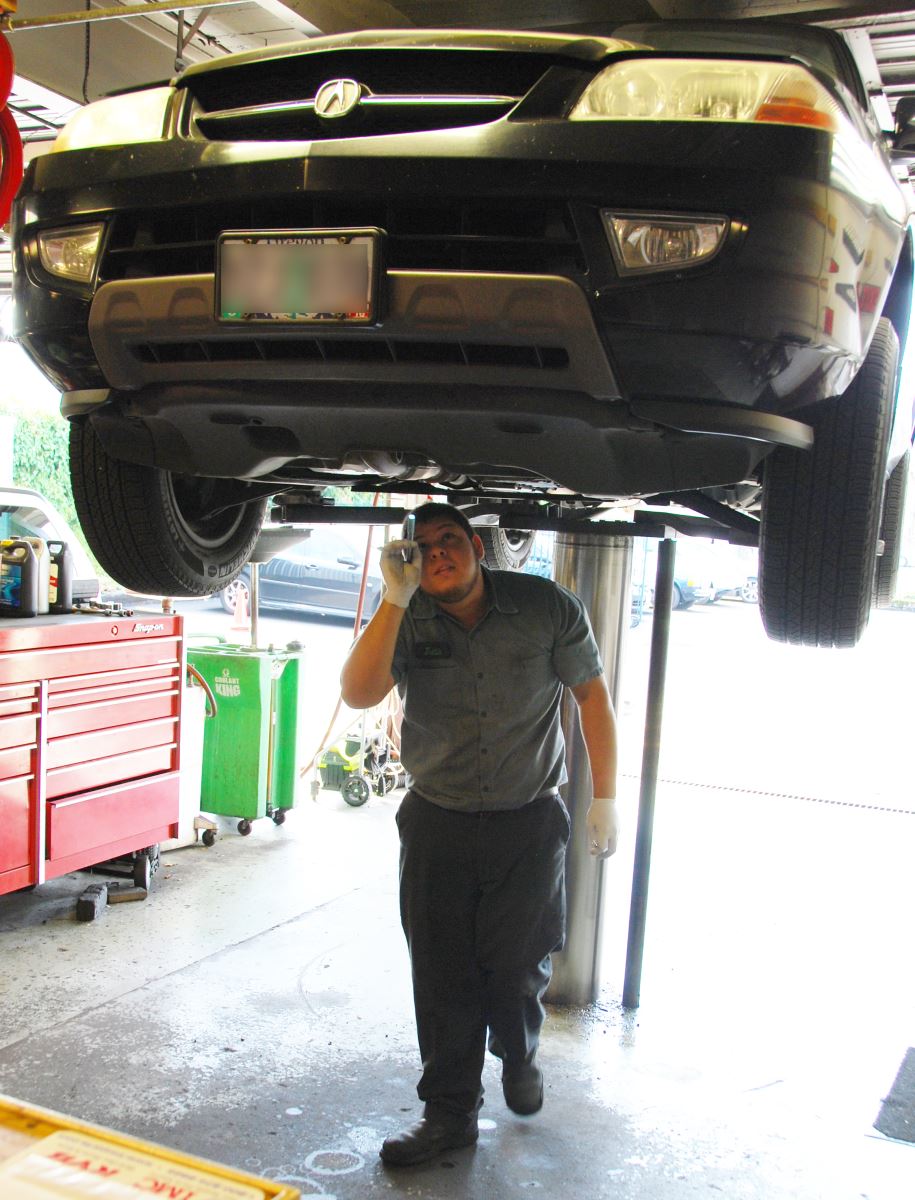A vehicle is one the greatest expenses a person ever incurs. Doing research on this major purchase, whether new or used, is very well advised. The first place I recommend you look is Consumer Reports; every year the April edition is dedicated to new and used vehicles. It is loaded with valuable information on the good, the bad and the ugly.
For example, one vehicle can cost more than four times as much to own over five years than another. And some vehicles have very bad dependability while others have great handling.
My cars both were Consumer Reports top picks. The publication also includes recommendations on which extras to buy and which to avoid with your purchase. Spending just two or three hours reading this issue can save you thousands of dollars over the life of your vehicle.

Before buying a used vehicle, it is very important to have it inspected by your favorite shop. We have had many folks bring in recently purchased cars that turned out to need major repairs. In one case, an engine replacement and front suspension repair cost more than the new owner paid for the vehicle. Sad indeed. So please, do your homework before buying.
More Care, Less Risk
Your risk-tolerance factor affects how you repair and maintain your vehicle. Case in point: I had a husband and wife come into the shop with a "check engine" light on. Our shop scanned the control unit in their SUV and found two different fault codes. We also found a bad battery; it was overdue for an oil change by 5,000 miles; and it was well overdue for a major service.
It was the wife's SUV, but the husband was to make all the calls on needed repairs. His first comment was "it doesn't need a battery," but I explained that there is a scientific approach to checking the battery's condition-and this one flunked the test badly. The only time that the wife said anything about the vehicle was to indicate that it was starting very slowly.
As conversations proceeded, it became apparent that the husband was a risk taker. He didn’t want to make this a dependable vehicle for his wife to drive. “She has a cell phone and towing insurance”, he suggested, so she is covered. A battery is a battery, right?
Obviously, it is best for whoever drives the vehicle to choose what kind of maintenance the vehicle receives. If you like to keep your vehicle for a long time with few problems, do the proper maintenance. Take it to your favorite shop and discuss what your plans are, how long you plan to keep the car, and what maintenance they recommend to keep your vehicle dependable for as long as you want it.
I actually had a customer who liked the unpredictability of his poorly maintained vehicle. He told me all about the fun adventures he had when his vehicle broke down, which included making a great friend in Idaho, who he met after spending two weeks getting his vehicle repaired there.
I, for one, like to know if I'm going to be able to get from point A to point B. I recommend proper maintenance starting early in the life of your vehicle, and ongoing, to drastically improve its long-term dependability and overall lifespan. Just like the human body, good care through your life makes getting older more enjoyable.
Friction Fights Efficiency
The best way to improve fuel mileage is to decrease friction as much as possible throughout your vehicle and all of it's moving parts.
Here are some tips:
Low tire pressure creates more friction, so check pressure monthly.
Use the proper oil; too-thick oil increases friction.
Drive the speed limit on the freeway. The faster you go, the more air friction the vehicle encounters. Remove unused rooftop racks.
Other fuel-saving tips:
Drive smoothly, anticipate stops and brake gently, and avoid quick starts.
If your "check engine" light is on, get it fixed.
Use your cruise control on the freeway.
Don't warm up your vehicle, just drive easy until the temperature gauge reaches the normal range.
Combine trips. A cold engine gets poor fuel mileage.
Empty car of unnecessary weight.
Oil Service Q & A
My friend Bruce asks, "Should I get my oil changed twice because it is extra dirty?" My answer to this is no; the color of your oil actually reveals very little about the properties of the oil.
Also, never put a cleaning solution in your oil. It will break off oil sludge inside the engine that can block oil passages and oil screens that can ruin the engine.
Just make sure to always change your oil according to the manufacturer's recommended service intervals or at least every 10,000 miles.